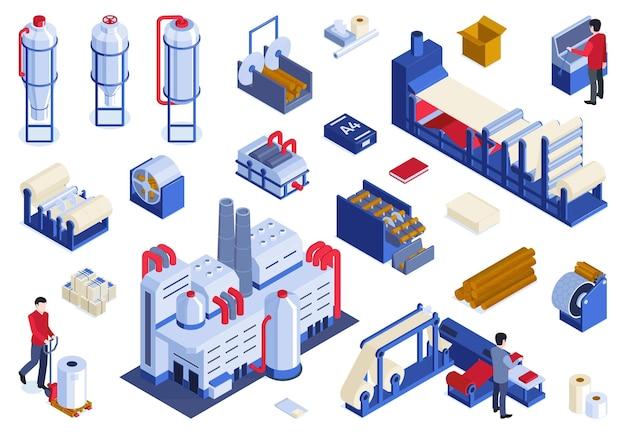Denver has been experiencing substantial growth in the real estate industry in recent times. The increasing demand for industrial real estate properties and the shifting office vacancy rates have been creating a lot of buzz in the market. As such, Cushman and Wakefield’s recently released industrial market report provides invaluable insights into the developments in the Denver industrial market.
The report not only highlights the status of the Denver industrial market but also provides vital information on office vacancy rates in the area. It’s fascinating to note that the Denver office vacancy rates are decreasing compared to other markets in the US due to the relocation of several companies to the Denver metro area.
If you’re an investor, builder, or occupier interested in the Denver industrial market, this report is a must-read. You’ll gain insightful information on the current trends and future predictions in the market, such as the growth of e-commerce, robotics, and the food industry.
This blog post aims to provide a comprehensive summary of the Cushman and Wakefield industrial market report, highlighting essential data and insights. We’ll delve into office vacancy rates, the growth of industrial real estate, and some of the critical trends that are shaping the market. So, whether you’re an existing investor or looking to venture into the Denver industrial market, stay tuned as we explore all the crucial data and insights!
Denver Industrial Market Report
Are you curious to know what’s new in the Denver industrial market report? Let’s dive in and discover all the exciting updates.
Market Overview
The Denver industrial market is booming! According to the latest report, the vacancy rate for industrial properties decreased to 4.1%, the lowest in years. Meanwhile, the average asking lease rate continued to climb, and new developments are popping up all over the metro area. The industrial market is, by all accounts, healthy and strong.
Economic Growth
The Denver metropolitan area has been experiencing steady economic growth over the past few years, leading to a surge in new construction projects. Companies are relocating to Denver and expanding their operations, driving occupancy rates and rental rates up. This trend is expected to continue as Denver increasingly establishes itself as a hub for manufacturing and logistics.
Hot Spots
The hottest submarkets in the Denver industrial market are areas near major highways and interstates, like the Central I-70 corridor and the Northeast submarket. These locations provide easy access to major transportation routes that allow businesses to efficiently move goods across the region. Other hot spots include areas near the Denver International Airport and the e-commerce hub of Aurora.
Future Outlook
The future looks bright for the Denver industrial market. The city’s vibrant economy, coupled with a growing population and infrastructure investments, is creating a great environment for businesses to thrive. With more new industrial developments in the works and the continued growth of e-commerce and logistics, demand for industrial space is projected to remain high in the coming years.
In summary, the Denver industrial market is an exciting and rapidly growing sector of the local economy. With low vacancy rates, high rental rates, and plenty of new developments on the horizon, this market is poised to continue thriving for years to come. Stay tuned for more updates on Colorado’s industrial market report in the future.
Denver Market Report
The Denver industrial market has experienced a significant uptick in activity, particularly in the past year. With an influx of companies seeking space to expand operations and the Colorado economy consistently ranking among the strongest in the nation, it’s no surprise that the Denver market report shows an increase in new construction and leasing activity.
New Construction
According to the latest Denver market report, there is currently over 6 million square feet of new industrial development underway in the Denver metro area. This development is primarily focused on the north and east sides of the city, including Thornton, Commerce City, and Brighton, where there is ample space for new construction.
This new construction will help address the current shortage of industrial space in the area and provide opportunities for businesses looking to expand or relocate. With a range of options, from small flex spaces to large warehouse facilities, there is something for every industry and business size.
Leasing Activity
The Denver industrial market report also indicated a strong uptick in leasing activity, with nearly 1 million square feet of industrial space absorbed in the first quarter of 2021 alone. This activity is primarily driven by e-commerce, logistics, and distribution companies, which continue to expand their footprint in the Denver area.
The report highlights that the vacancy rate remains low at just 3.1%, which is driving up rental rates across all submarkets. However, with the current level of new construction underway, it is expected that rental rates will stay competitive and continue to attract businesses to the area.
In conclusion, the Denver industrial market report shows a thriving and growing market with an abundance of opportunity for businesses looking to expand or relocate to the area. With new construction and leasing activity on the rise, it’s an exciting time to be part of the Denver business community. As always, it is important to stay up-to-date on the latest market data and trends to make informed decisions and stay competitive in this dynamic market.
Denver Office Vacancy Rates
Denver’s commercial real estate market has been rapidly expanding in recent years, with various sectors witnessing significant growth. While the industrial sector continues to emerge as the top-performing sector, the office sector is also gaining traction, with steady growth rates and low vacancy rates.
Current Statistics
As of 2021, Denver’s office market vacancy rate stood at 11.6%, which was a significant drop from the previous year. The steady reduction in the vacancy rate has largely been due to the robust job market, increased demand for office space, and a lack of new development.
New Development Driving Up Demand
Despite a drop in demand caused by the pandemic in 2020, the office market is gradually recovering, with new developments playing a significant role. For instance, large office developments like the Cherry Creek North Tower 2, the HUB office campus in RiNo, and the McGregor Square office complex are all contributing to the increased demand for office space.
Submarkets to Watch Out For
Denver’s downtown submarket remains a hub for office space, with prime properties like 1144 Fifteenth and Wells Fargo Center standing tall within the CBD. However, other submarkets like the North CBD, LoDo and RiNo are becoming increasingly popular due to the availability of land and lower rent rates.
Future Outlook
The future looks bright for Denver’s office market, with more new development projects in the pipeline. However, there is still uncertainty surrounding the full extent of the pandemic’s impact on the office sector. Nevertheless, experts predict that low vacancy rates and an increase in demand will sustain the market in the coming years.
In conclusion, Denver’s office market is showing steady growth with low vacancy rates, increasing demand, and new developments contributing to the overall growth of the city’s commercial real estate market. With many submarkets to choose from and more new development projects on the horizon, Denver’s office market is well-positioned for stability and growth in the coming years.
Denver Industrial Real Estate
Denver’s industrial real estate market has been bullish in recent years. A significant number of logistics, warehouse, and distribution centers have been set up in the city. This growth has been driven by various factors such as population growth, increased infrastructure investment, and a healthy economy.
Location is Key
When it comes to industrial real estate, location plays a crucial role in determining market demand. Denver’s prime location, with easy access to major highway systems and an international airport, makes it a top location for warehousing and logistics. The proximity to other major cities such as Salt Lake City and Albuquerque also enhances the region’s desirability.
Big Demand for Bigger Spaces
While small spaces do exist in Denver’s industrial real estate market, the demand for larger spaces is higher. This is because many businesses require significant space to operate efficiently. Companies dealing in manufacturing, distribution, storage, and logistics need ample space to accommodate equipment, machinery, and employees.
A Landlord’s Market
The shift towards e-commerce has further increased the demand for industrial real estate in Denver. With more people shopping online than ever before, logistics companies need more space to store goods and prepare them for shipment. This trend, coupled with limited available land, has created a landlord’s market whereby landowners can set favorable leasing terms.
Denver’s industrial real estate market is a thriving sector with promising growth potential. With increasing demand for warehousing and distribution space, investors and businesses are paying attention to the Denver industrial market. While there are challenges in the market, including limited land availability, the region’s prime location and solid economic growth have positioned it as a top location for industrial real estate development.
Cushman and Wakefield Industrial Market Report
Are you thinking of investing in the Denver industrial market? Before you take that leap, it’s essential to have a clear understanding of the market’s current state. In this section, we’ll take a closer look at the Cushman and Wakefield industrial market report and its key findings.
Overview of Cushman and Wakefield
Cushman and Wakefield is a global leader in real estate services with a team of highly skilled professionals providing industry-leading insights and expertise. With nearly 400 offices in 60 countries worldwide, they offer a comprehensive range of services, including leasing, property management, appraisal, and market research.
Denver Industrial Market Trends
According to the latest Cushman and Wakefield report, the Denver industrial market remains robust despite the pandemic’s challenges. The report shows that the overall vacancy rate in the Denver region increased slightly from 5.3% in Q3 2020 to 5.9% in Q4 2020. Despite this increase, the vacancy rate remains below the 10-year average of 6.2%.
The report also notes that the demand for industrial space is continuing to increase, with over 2.3 million square feet of net absorption in Q4 2020. The increase in demand was driven mainly by e-commerce and distribution companies. Furthermore, rental rates in the Denver industrial market continued to increase steadily, with the average rent per square foot increasing by 5.7% from 2019 to 2020.
The Cushman and Wakefield industrial market report provides valuable insights into the Denver industrial market’s current state. The report’s findings indicate that the Denver industrial market is resilient and continues to show steady growth despite the pandemic’s challenges. As such, investors looking to enter the Denver industrial market can do so with confidence.
In summary, the Cushman and Wakefield industrial market report is an important resource for investors looking to make informed decisions about the Denver industrial market. With the report’s comprehensive insights and expertise, investors can leverage the current market trends to make smart investment decisions that will yield long-term benefits.



